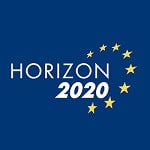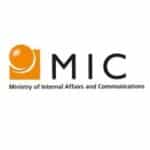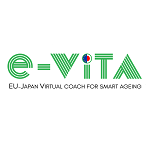e-VITA: promoting “ageing well” through digital technology
On March 18 2024
Updated on February 13, 2025, to reflect the latest information.
In all countries, people are living longer, and the proportion of senior citizens is increasing. The challenge is no longer simply to increase life expectancy, but to maintain people’s physical, mental and social health. In Japan, 30% of the population is already over 60.[1] In France, by 2030 there will be more over-65s than under-15s.[2]
European and Japanese researchers have been looking into how information and communication technologies (ICT) can provide practical solutions for “aging well”. On March 7 and 8, 2024, Telecom SudParis hosted researchers from the European H2020 “e-Vita” program to present their results.
e-VITA conference at Telecom SudParis
Creating tools and services to help seniors live at home

e-VITA is an innovative research project in the field of healthy and active aging and is part of a European H2020 program. It received funding from the European Union’s H2020 program under grant agreement no. 101016453.
The Japanese consortium received funding from the Japanese Ministry of Internal Affairs and Communications (MIC), Grant no. JPJ000595.

This project was developed in collaboration with European partners, including the APHP, and Japanese partners, and aims to prevent the exclusion of elderly people by using information and communication technologies (ICTs). Jérôme Boudy and Mossaab Hariz belong to the team of digital health researchers from Telecom SudParis involved in this project focusing on the theme of “aging well”.
The project uses various sensors and equipment configurations to develop an interactive system designed to improve users’ quality of life e.g. Japanese android or non-android companion robots such as Nao, holographic interfaces and cult representations, smartphones and simple tablets.
Prevention and Autonomy: the key words in personal care
 A virtual assistant provides a variety of services to help users in their daily activities, leisure pursuits or in following their treatment. The system is able to talk to the user via a text or voice conversational agent.
A virtual assistant provides a variety of services to help users in their daily activities, leisure pursuits or in following their treatment. The system is able to talk to the user via a text or voice conversational agent.
This communication enables the system to understand some of the user’s context and behavior, in particular through dialogue triggering. For example, during conversation, the system can determine whether the user has done their exercises or taken their medication.
A multimodal fusion platform developed by Telecom SudParis
With the rise of the Internet of Things, a variety of sensors such as connected watches, presence detectors and connected weather stations are collecting other types of information which, combined with contextual information, help to develop indicators such as a person’s climate comfort level. Merging this data enables higher-level information to be inferred about the user's activity, thanks to HAR (Human Activity Recognition), which uses artificial intelligence.
The development of the multimodal fusion platform, in addition to a data collection system developed by another project partner (ENGINEERING, in Italy), has been entrusted to Telecom SudParis, and draws on its extensive experience in this field.
“In terms of technology, we are using open-source tools such as the FIWARE architecture to manage the IoT infrastructure, and the RASA dialogue management system. This system uses clearly defined dialogues that we have established, corresponding for example to scenarios for preventing discomfort in hot weather or encouraging physical activity. We integrated a ChatGPT module, trained on a restricted database that we provided, to avoid ‘hallucinations’,” explain Jérôme Boudy and Mossaab Hariz, research professors at Telecom SudParis. “This enabled us to develop a proactive solution capable of triggering personalized, contextualized dialogues.” Evaluation is carried out by seniors in their homes.
This project, with its strong multicultural focus, is currently in the evaluation phase, notably by users, in line with living lab concept. This provides a key opportunity to demonstrate the relevance of applying multidisciplinary research to solving a major social problem in many countries.
[1] https://www.who.int/fr/news-room/fact-sheets/detail/ageing-and-health
[2] https://solidarites.gouv.fr/preparer-la-france-de-demain-ajouter-de-la-vie-aux-annees-strategie-bien-vieillir
Evident: a Living Lab at Telecom SudParis – a third place for experimentation in digital health
The experimentation involves evaluating tools and services designed to enable people to continue living at home. Thanks to funding from the Essonne Département, the third place for experimentation in digital health, “Evident” (Intelligent Living Space for Dependent People), a collaborative co-design space run by Telecom SudParis, was launched in 2016 in Évry Val d’Essonne. It features an apartment equipped with a network of sensors and connected objects. Evident was inspired by the Santé Autonomie living labs but is not a living lab in the strict sense of the term, in that, for safety reasons, it accommodates seniors for no more than 8 hours a day.
“Evident is dedicated to experimentation, evaluation and demonstration activities for our projects and those of our partners, and is also used for training,” explains Jérôme Boudy. “Students are particularly welcome to work on health-related projects,” adds Mossaab Hariz. “This enables them to be in contact with researchers at different stages of their program, with the Gate projects (fr) in the first year, Cassiopée projects in the second year, or end-of-study projects (PFE) in the third year.”





